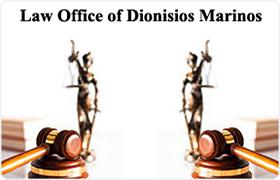Lakewood Adoption Lawyer, California
Sponsored Law Firm
-
 x
x

Click For More Info:
-
Law Office of Dionisios Marinos
5150 E Pacific Coast Hwy Suite 200 Long Beach, CA 90804» view mapDivorce & Family Law Committed To Client Satisfaction
Don't hesitate to call the Law Office of Dionisios Marinos in Long Beach, CA. We are committed to your satisfaction. Call us today.
800-846-1250
Agata Ewa Zwierzchowski
Alimony & Spousal Support, Adoption, Corporate, Business Organization
Status: In Good Standing
FREE CONSULTATION
CONTACTFREE CONSULTATION
CONTACTFREE CONSULTATION
CONTACTCarl M. Bergkvist
Arbitration, Adoption, Business Organization, Administrative Law
Status: In Good Standing Licensed: 57 Years
James R Jones Jr.
Divorce & Family Law, Lawsuit & Dispute, Juvenile Law, Adoption, Collection
Status: In Good Standing Licensed: 45 Years
FREE CONSULTATION
CONTACTRalph Mansyn Tsong
Immigration, Family Law, Child Custody, Adoption, Medical Malpractice
Status: In Good Standing Licensed: 24 Years
 Dionisios Marinos Long Beach, CA
Dionisios Marinos Long Beach, CA Practice AreasExpertise
Practice AreasExpertise
